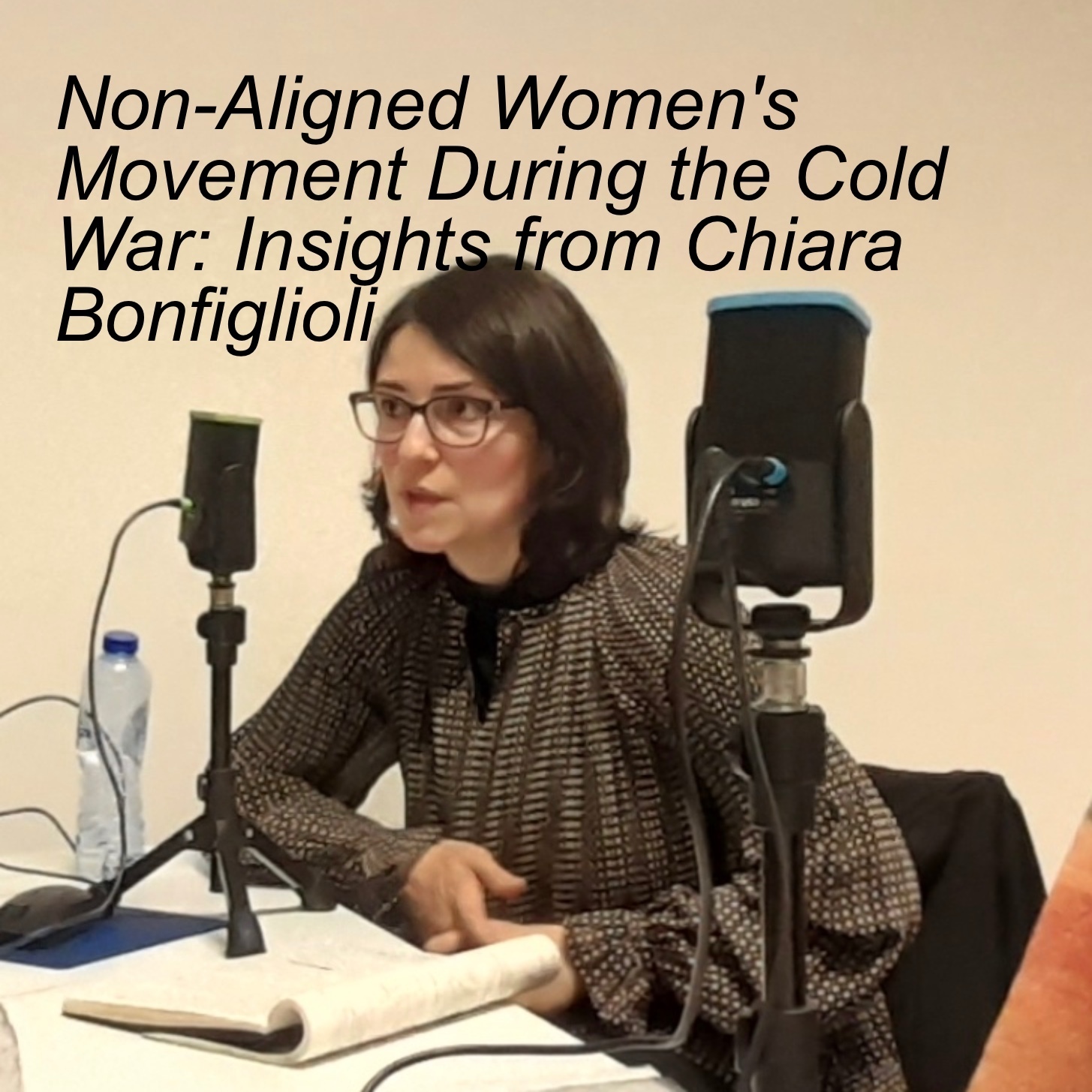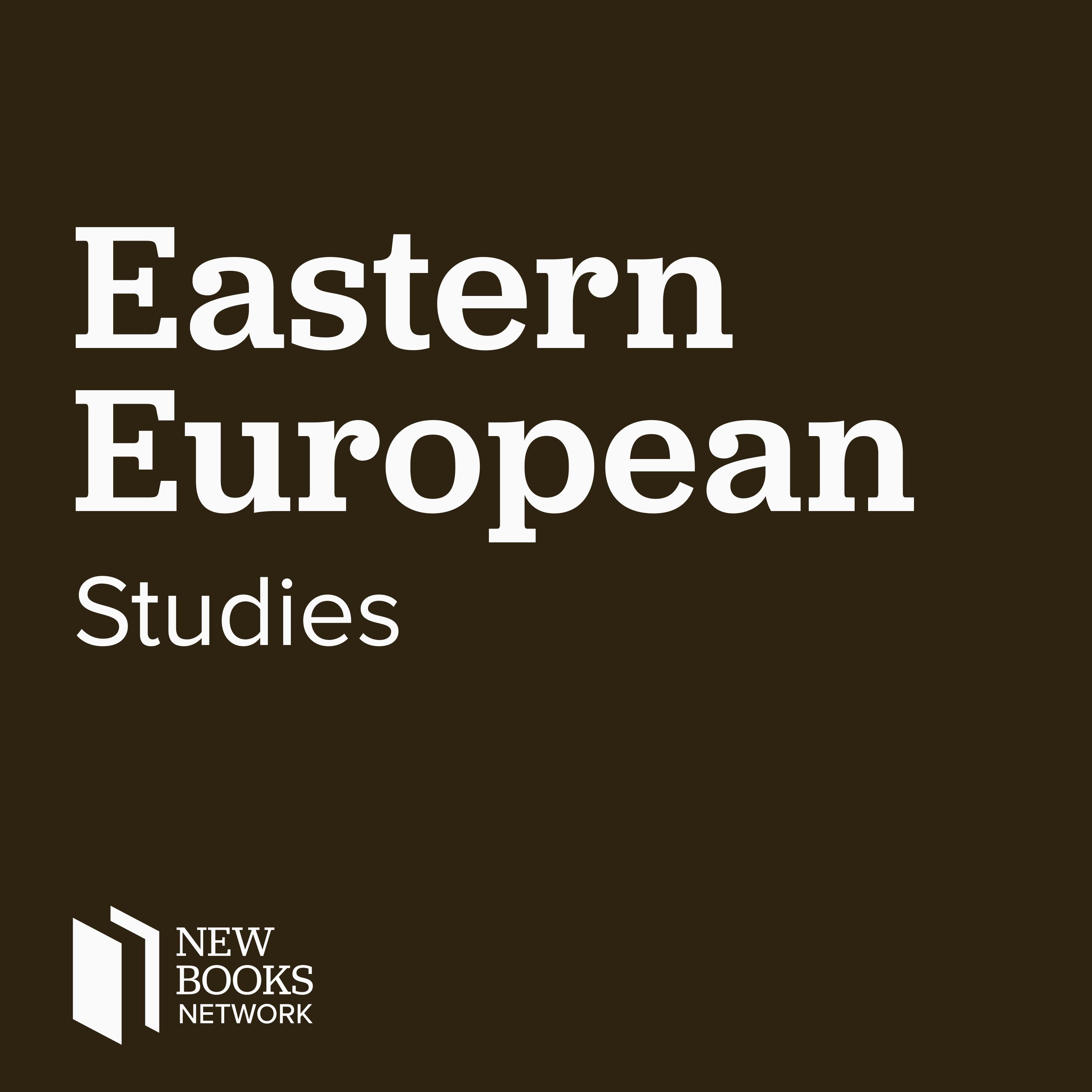Shows
 Remembering Yugoslavia(Post)Partisan WomenOne hundred thousand women fought in the Yugoslav Partisan forces and two million more provided support to the resistance (and revolution) in the rear. Today the generation of these women’s granddaughters carries on the legacy of their struggle. With Chiara Bonfiglioli, Ana Džokić, and Lura Limani. Featuring music by PMG Kolektiv and Sticky Keys.The Remembering Yugoslavia podcast explores the memory of a country that no longer exists. Created, produced, and hosted by Peter Korchnak. New episodes one to two times per month.Show notes/transcript: RememberingYugoslavia.com/Podcast-Post-Partisan-WomenInstagram: @RememberingYugoslaviaSUPPO...2024-04-0157 min
Remembering Yugoslavia(Post)Partisan WomenOne hundred thousand women fought in the Yugoslav Partisan forces and two million more provided support to the resistance (and revolution) in the rear. Today the generation of these women’s granddaughters carries on the legacy of their struggle. With Chiara Bonfiglioli, Ana Džokić, and Lura Limani. Featuring music by PMG Kolektiv and Sticky Keys.The Remembering Yugoslavia podcast explores the memory of a country that no longer exists. Created, produced, and hosted by Peter Korchnak. New episodes one to two times per month.Show notes/transcript: RememberingYugoslavia.com/Podcast-Post-Partisan-WomenInstagram: @RememberingYugoslaviaSUPPO...2024-04-0157 min Studio Central and Eastern EuropeChiara Bonfiglioli on women's activism and the Non-Aligned Movement during the Cold War
In this podcast, Chiara Bonfiglioli, associate professor in contemporary history at Ca’ Foscari University of Venice, speaks of the women's movement in non-aligned countries during the Cold War. Interviewed by Ana Devic, a Marie Curie fellow at KU Leuven, Bonfiglioli shares narratives of cross-border friendship and vibrant energy, of resilience and camaraderie, which she found in the archives and biographical writings of female activists in South-East Europe and Italy. The podcast is an episode of the Studio FCEE series, produced by the Forum on Central and Eastern Europe at KU Leuven.
2024-02-279h 59
Studio Central and Eastern EuropeChiara Bonfiglioli on women's activism and the Non-Aligned Movement during the Cold War
In this podcast, Chiara Bonfiglioli, associate professor in contemporary history at Ca’ Foscari University of Venice, speaks of the women's movement in non-aligned countries during the Cold War. Interviewed by Ana Devic, a Marie Curie fellow at KU Leuven, Bonfiglioli shares narratives of cross-border friendship and vibrant energy, of resilience and camaraderie, which she found in the archives and biographical writings of female activists in South-East Europe and Italy. The podcast is an episode of the Studio FCEE series, produced by the Forum on Central and Eastern Europe at KU Leuven.
2024-02-279h 59 Gender & mehr - leicht gesagt!#18 Southeast European History with Chiara Bonfiglioli and Rory Archer (Episode in English)In this episode the historians Chiara Bonfiglioli and Rory Archer give us insight into their research on women's and gender history in Southeast Europe in the 20th century. They talk about their individual research projects on Albanian private sector workers and the textile industry, different research approaches, and intersectionality.
*
More about the Elisabeth-List-Fellowship Project “Women's and gender history in Southeast Europe in the 20th Century: oral
history, ethnographic and biographical approaches as a way to advance intersectionality”
More about Chiara Bonfiglioli on her official website
More about Rory Archer on his offi...2024-02-061h 04
Gender & mehr - leicht gesagt!#18 Southeast European History with Chiara Bonfiglioli and Rory Archer (Episode in English)In this episode the historians Chiara Bonfiglioli and Rory Archer give us insight into their research on women's and gender history in Southeast Europe in the 20th century. They talk about their individual research projects on Albanian private sector workers and the textile industry, different research approaches, and intersectionality.
*
More about the Elisabeth-List-Fellowship Project “Women's and gender history in Southeast Europe in the 20th Century: oral
history, ethnographic and biographical approaches as a way to advance intersectionality”
More about Chiara Bonfiglioli on her official website
More about Rory Archer on his offi...2024-02-061h 04 RevDem Podcast“Neither Amnesia nor Nostalgia” Discussing the Non-Aligned Movement with Chiara Bonfiglioli, Agustín Cosovschi, and Paul StubbsIn this conversation with RevDem contributor Una Blagojević, Paul Stubbs, Chiara Bonfiglioli, and Agustín Cosovschi discuss the different meanings of the Non-Aligned Movement and the need to rethink the “West–East–Non-Aligned” trajectories; approach Yugoslav foreign policy critically and explain why they attach such importance to imaginaries; show the importance of developing a “perspective from below” and analyze what a gendered perspective on the movement can yield; and reflect on possibilities of future research.2023-07-1346 min
RevDem Podcast“Neither Amnesia nor Nostalgia” Discussing the Non-Aligned Movement with Chiara Bonfiglioli, Agustín Cosovschi, and Paul StubbsIn this conversation with RevDem contributor Una Blagojević, Paul Stubbs, Chiara Bonfiglioli, and Agustín Cosovschi discuss the different meanings of the Non-Aligned Movement and the need to rethink the “West–East–Non-Aligned” trajectories; approach Yugoslav foreign policy critically and explain why they attach such importance to imaginaries; show the importance of developing a “perspective from below” and analyze what a gendered perspective on the movement can yield; and reflect on possibilities of future research.2023-07-1346 min IDEAS PodcastMarxist FeminismGoing beyond a mere existence of a theoretical and political standpoint called Marxist feminism, this episode approaches the topic by addressing a complex relationship between Marxism and leftist feminism, which has developed for two centuries.
This story is here told by our fictional guide, Ana, who leads us through the past events marking different segments of this history, the end of the 19th and beginning of the 20th and then, a leap to the Second World War in Yugoslavia; finally bringing us to rebellious times of the 1970s and the 1980s. The first moment in history takes...2022-11-0228 min
IDEAS PodcastMarxist FeminismGoing beyond a mere existence of a theoretical and political standpoint called Marxist feminism, this episode approaches the topic by addressing a complex relationship between Marxism and leftist feminism, which has developed for two centuries.
This story is here told by our fictional guide, Ana, who leads us through the past events marking different segments of this history, the end of the 19th and beginning of the 20th and then, a leap to the Second World War in Yugoslavia; finally bringing us to rebellious times of the 1970s and the 1980s. The first moment in history takes...2022-11-0228 min New Books in Eastern European StudiesChiara Bonfiglioli, "Women and Industry in the Balkans: The Rise and Fall of the Yugoslav Textile Sector" (I. B. Tauris, 2019)Women's emancipation through productive labour was a key tenet of socialist politics in post-World War II Yugoslavia. Mass industrialisation under Tito led many young women to join traditionally 'feminised' sectors, and as a consequence the textile sector grew rapidly, fast becoming a gendered symbol of industrialisation, consumption and socialist modernity. By the 1980s Yugoslavia was one of the world's leading producers of textiles and garments. The break-up of Yugoslavia in 1991, however, resulted in factory closures, bankruptcy and layoffs, forcing thousands of garment industry workers into precarious and often exploitative private-sector jobs. Drawing on more than 60 oral history interviews with...2021-08-031h 11
New Books in Eastern European StudiesChiara Bonfiglioli, "Women and Industry in the Balkans: The Rise and Fall of the Yugoslav Textile Sector" (I. B. Tauris, 2019)Women's emancipation through productive labour was a key tenet of socialist politics in post-World War II Yugoslavia. Mass industrialisation under Tito led many young women to join traditionally 'feminised' sectors, and as a consequence the textile sector grew rapidly, fast becoming a gendered symbol of industrialisation, consumption and socialist modernity. By the 1980s Yugoslavia was one of the world's leading producers of textiles and garments. The break-up of Yugoslavia in 1991, however, resulted in factory closures, bankruptcy and layoffs, forcing thousands of garment industry workers into precarious and often exploitative private-sector jobs. Drawing on more than 60 oral history interviews with...2021-08-031h 11 German Historical Institute London PodcastChiara Bonfiglioli: Internationalist Waves and Feminist Waves in Italy, Yugoslavia, and Cuba from the 1950s to 1970sPart of the Summer Seminar lecture series 2020 on Feminist Histories2020-07-0156 min
German Historical Institute London PodcastChiara Bonfiglioli: Internationalist Waves and Feminist Waves in Italy, Yugoslavia, and Cuba from the 1950s to 1970sPart of the Summer Seminar lecture series 2020 on Feminist Histories2020-07-0156 min German Historical Institute London PodcastChiara Bonfiglioli: Internationalist Waves and Feminist Waves in Italy, Yugoslavia, and Cuba from the 1950s to 1970sThis lecture focuses on women’s internationalism in Italy, Yugoslavia, and Cuba, and on the gendered imaginaries of citizenship that circulated among the generation of women active within Cold-War mass organizations in the 1950s and 1960s.2020-07-0156 min
German Historical Institute London PodcastChiara Bonfiglioli: Internationalist Waves and Feminist Waves in Italy, Yugoslavia, and Cuba from the 1950s to 1970sThis lecture focuses on women’s internationalism in Italy, Yugoslavia, and Cuba, and on the gendered imaginaries of citizenship that circulated among the generation of women active within Cold-War mass organizations in the 1950s and 1960s.2020-07-0156 min